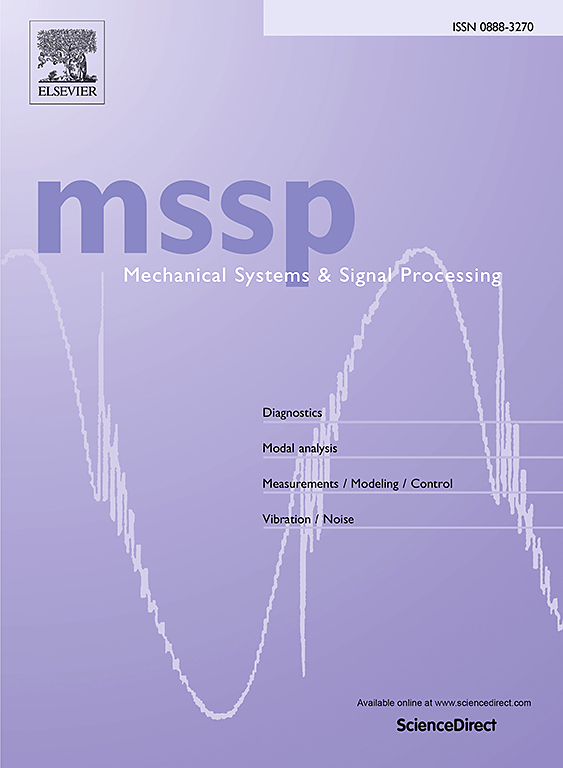Research on finite frequency robust H∞ control of all-terrain vehicle magnetorheological suspension system
IF 7.9
1区 工程技术
Q1 ENGINEERING, MECHANICAL
引用次数: 0
Abstract
To improve the vibration attenuation performance of the all-terrain vehicles (ATVs) equipped with magnetorheological (MR) suspension with parameter uncertainty and time delay in the sensitive frequency band of human body, this study proposed a finite-frequency robust (FFR) control strategy. Firstly, a MR suspension model with seven degrees of freedom is established. The boundaries of parameter uncertainty and time delay are obtained through the experiment analysis of the MR damper, occupants and cargo mass. Secondly, in the framework of Lyapunov-Krasovskii stability theory, an FFR controller is designed in the frequency domain of human sensitivity specified in ISO2631 to enhance ride comfort level. Meanwhile, three suspension constrained requirements of suspension deflection, wheel dynamic load, actuator force are also guaranteed. Subsequently, the controller parameters with frequency-dependent characteristics are obtained using the linear matrix inequality (LMI) toolbox. Finally, off-road road experiments are conducted to validate the effectiveness of the designed controller. The results indicate that the FFR controller demonstrates an outperform capability for attenuate the vertical (4–12.5 Hz), pitch, and roll (0.5–2 Hz) accelerations in the human-sensitive frequency bands compared with the passive and traditional robust (TR) control algorithms.
全地形车辆磁流变悬架系统有限频率鲁棒H∞控制研究
为了提高搭载磁流变悬架的全地形车(atv)在人体敏感频段参数不确定性和时滞的减振性能,提出了一种有限频率鲁棒(FFR) H∞控制策略。首先,建立了七自由度磁流变悬架模型;通过对磁流变阻尼器、乘员和货物质量的实验分析,得到了参数不确定性和时滞的边界。其次,在Lyapunov-Krasovskii稳定性理论框架下,在ISO2631规定的人体灵敏度频域设计FFR H∞控制器,以提高车辆的平顺性。同时,还保证了悬架挠度、车轮动载荷、作动器力三个悬架约束要求。随后,利用线性矩阵不等式(LMI)工具箱获得了具有频率相关特性的控制器参数。最后,进行了越野道路实验,验证了所设计控制器的有效性。结果表明,与被动和传统的鲁棒(TR) H∞控制算法相比,FFR H∞控制器在人类敏感频段衰减垂直(4-12.5 Hz)、俯仰和滚转(0.5-2 Hz)加速度方面表现出优异的能力。
本文章由计算机程序翻译,如有差异,请以英文原文为准。
求助全文
约1分钟内获得全文
求助全文
来源期刊

Mechanical Systems and Signal Processing
工程技术-工程:机械
CiteScore
14.80
自引率
13.10%
发文量
1183
审稿时长
5.4 months
期刊介绍:
Journal Name: Mechanical Systems and Signal Processing (MSSP)
Interdisciplinary Focus:
Mechanical, Aerospace, and Civil Engineering
Purpose:Reporting scientific advancements of the highest quality
Arising from new techniques in sensing, instrumentation, signal processing, modelling, and control of dynamic systems
 求助内容:
求助内容: 应助结果提醒方式:
应助结果提醒方式:


